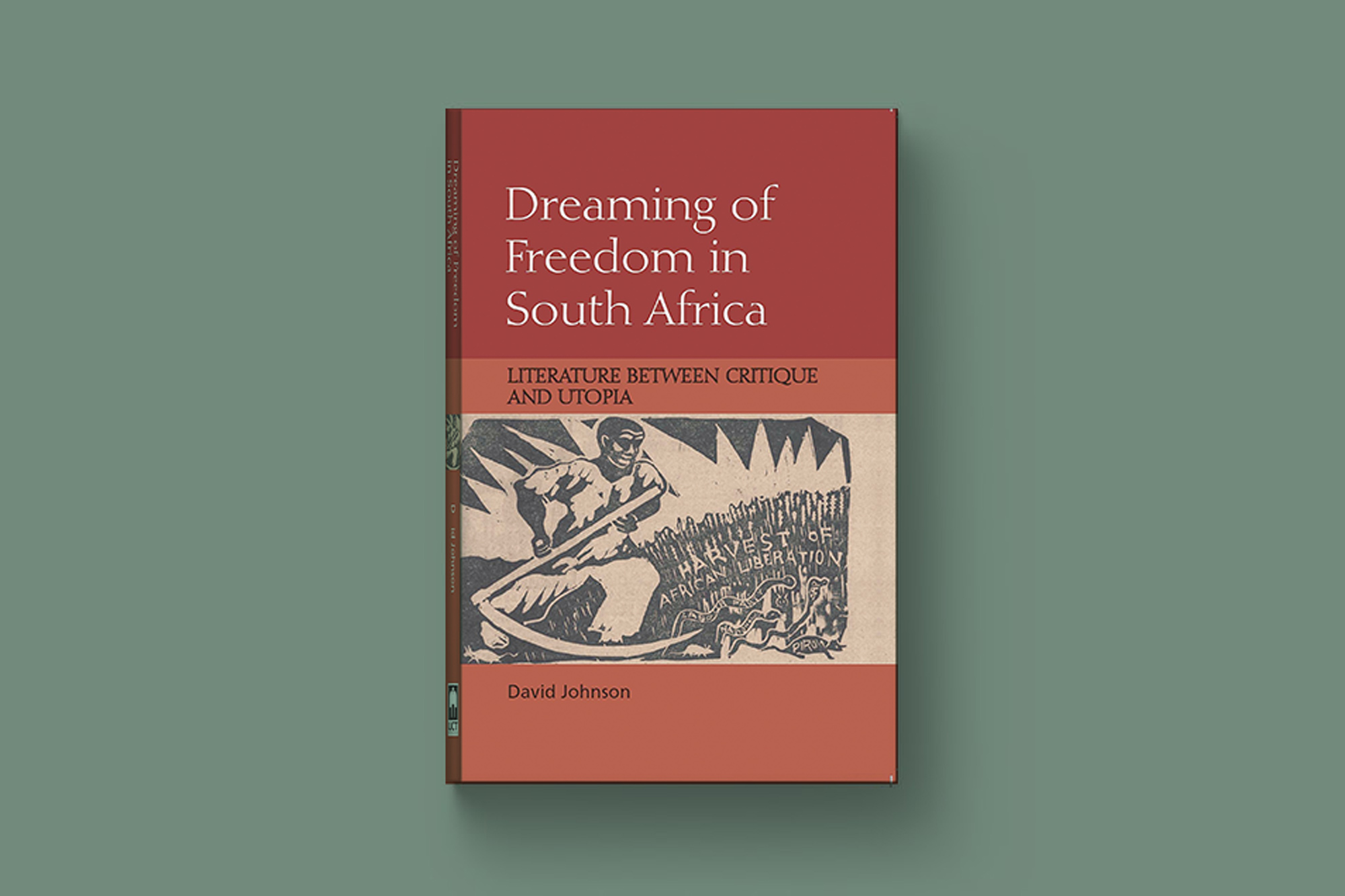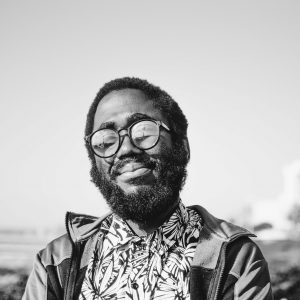What has happened to our dreams of freedom?
David Johnson’s book looks to the literature of our past, when writers’ imaginations were rich with hope, to help us envisage a more just and equal future.
Author:
14 February 2022

This is a lightly edited excerpt from the introduction to David Johnson’s Dreaming of Freedom in South Africa: Literature Between Critique and Utopia (Edinburgh UP/UCT Press, 2020).
This new book considers the many South African dreams of freedom from the dark years of colonialism, segregation and apartheid, and tries to answer some difficult questions: why for many of us has the post-1994 reality failed to live up to our dreams of freedom? Why have certain compelling dreams of freedom been forgotten? And why have dreams of freedom so often been expressed as works of literature?
To answer the first question, I discuss the dream of freedom that did come true – the liberal-nationalist dream of a society made up of an equal citizenry in a unitary nation-state with a capitalist economy. Embraced by Olive Schreiner in the 19th century, and nurtured by figures like H Selby Msimang, RFA Hoernlé, ZK Matthews, Albert Luthuli and Alan Paton, this dream culminated in the ANC’s assumption of power in 1994. Far from being unique, however, this dream corresponds closely with what the historian Immanuel Wallerstein has defined as “centrist liberalism”. According to Wallerstein, centrist liberalism arose with the globalisation of capitalist economic relations, originating in Europe, and then copied by colonies like South Africa. Noting the limitations of the centrist-liberal state, specifically its exclusion of the vast majority from its economic benefits, the question arises: as centrist liberalism has thus far failed to deliver (economic) freedom to all, why should the South African post-apartheid variation be any different?
The second question as to why certain dreams of freedom have been forgotten is answered by reassessing four alternative political traditions – the Independent and Commercial Workers’ Union (ICU); the Communist Party of South Africa (CPSA); the anti-Stalinist Non-European Unity Movement (NEUM), and the Pan-Africanist Congress (PAC). These traditions were alike in that they all demanded more than the freedoms laid down in the liberal-nationalist script – the extension of the franchise to all races and political rights for all. For the ICU leaders Clements Kadalie and AWG Champion, freedom also meant higher wages and job security; for the CPSA’s Albert Nzula and Edward Roux, freedom also meant the redistribution of wealth under the dictatorship of the proletariat; for IB Tabata and Ben Kies of the NEUM, freedom also had to liberate workers of all nations from economic exploitation; and for Muziwakhe Anton Lembede of the ANC Youth League and Mangaliso Robert Sobukwe of the PAC, freedom also meant psychological liberation from racist ideology and the restoration of African land. In their different ways, these forgotten dreams of freedom combined compelling socioeconomic critiques with bold attempts to imagine different and better ways of living.
Related article:
What these dreams of freedom also share is the assumption that much more than the personal freedom of the individual was at stake. Reflecting on life under Nazi rule, the philosopher Hannah Arendt noted that “in that darkest of times, both inside and outside Germany the temptation was particularly strong, in the face of a seemingly unendurable reality, to shift from the world and its public space to an interior life”. Acknowledging that such “inner migration”, the flight from the world to concealment, from public life to anonymity could in certain circumstances be justified, Arendt reserved her admiration for those figures who pursued freedom for the collective. In this respect, Rosa Luxemburg was exemplary: “she was alone … in her stress on the absolute necessity of not only individual but public freedom under all circumstances”. The book accordingly recovers the South African versions of Luxemburg – the dissident intellectuals and communities who conceived of freedom in public rather than individual terms.
I also try to explain those moments in South African history when dreaming of freedom felt all but impossible. The heroic rebels (pre-eminently Nelson Mandela) and their utopian documents (like the Freedom Charter) have been celebrated. But much less attention has been given to the thoughts of the millions of South Africans who endured racial oppression and economic exploitation but could not fight back or produce elaborate dreams of freedom. The science fiction writer Ursula Le Guin has criticised the tendency to elevate heroic resistance at the cost of understanding how oppressive societies preclude even thinking about freedom: “if a slave is not Spartacus, he is nobody. This is merciless and unrealistic. Most slaves, most oppressed people, are part of the social order which, by the very terms of their oppression, they have no opportunity even to perceive as capable of being changed”. Applying Le Guin’s insight, I have sought out the slaves who were not Spartacus, the South African rebels who were not Mandela, tracing their faint dreams of freedom and examining their enforced silences.
Finally, with respect to the third question as to why so many dreams of freedom appear as works of literature, I seek the answer in dozens of literary texts imagining South African futures, some by well-known figures like SEK Mqhayi, Alan Paton, Jordan Ngubane, Karel Schoeman, Winifred Holtby, Peter Abrahams, Dora Taylor, Lauretta Ngcobo and Bessie Head, and many more by obscure and forgotten writers. Adopting the broadest definition of “literature”, I assess novels, plays, short stories, poems, adaptations, reviews and criticism, prophecies, satires and isimbongo. Throughout the book, such literary dreams of freedom are juxtaposed with the many dreams expressed in political speeches, manifestoes, constitutions (including bills of rights), pamphlets, newspaper articles, letters and interviews. And as prophecies of the future of course come as often in the form of nightmares as well as of dreams, the many nightmares are given due attention, not least because dystopias have the capacity to shine a critical light upon the flaws in our society.
Since the end of apartheid, writers reflecting on South African society have continued to criticise the status quo vigorously, but the utopian hope so evident in decades past is now largely absent. Literary works and political blueprints today are overwhelmingly dystopian, conjuring up ever bleaker futures scarred by nationalism, capitalism and ecological catastrophe. In our current dark times, the dreams of freedom of earlier generations therefore deserve renewed attention. They function as a challenge to the present and a resource for the future.

